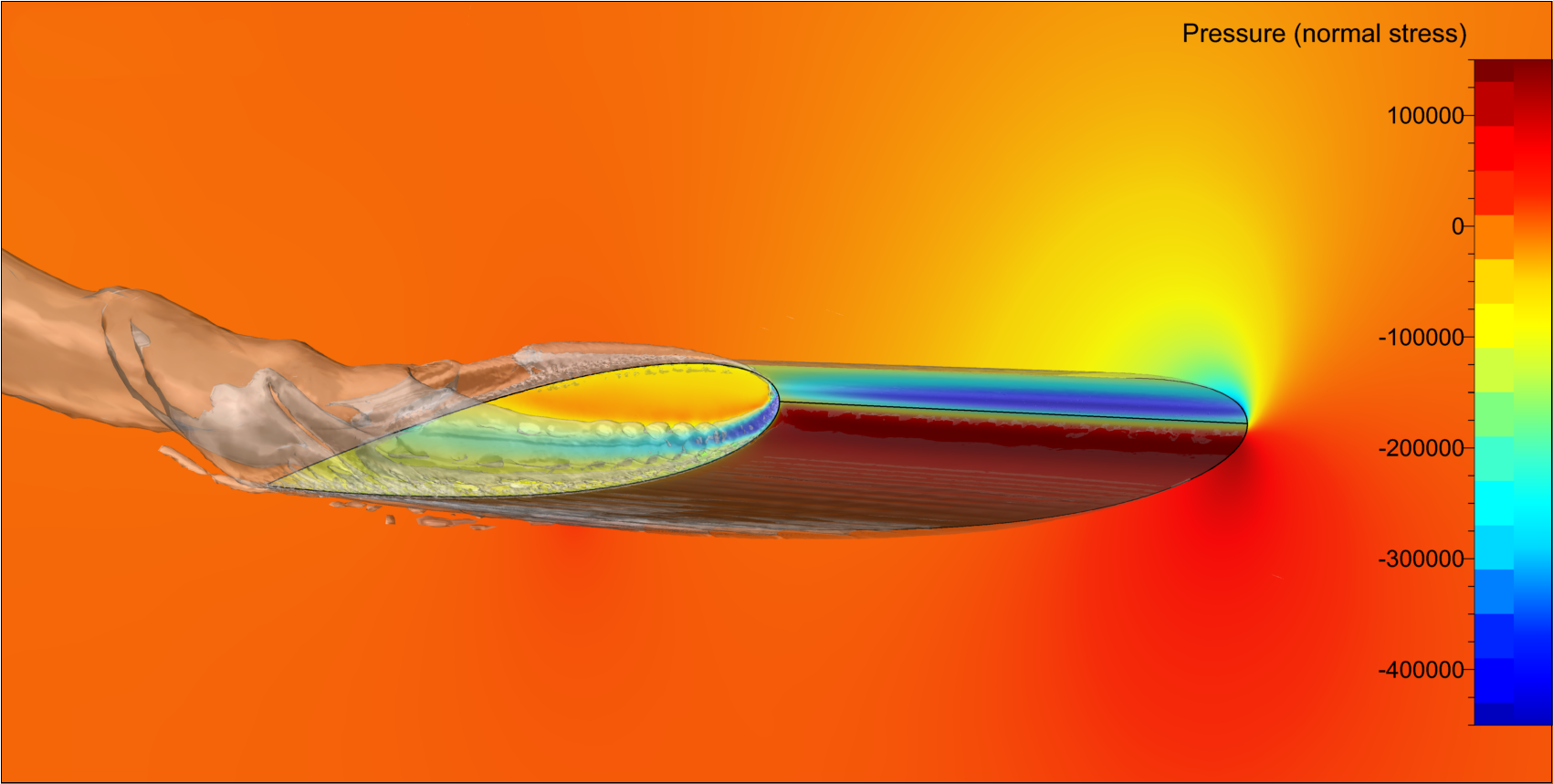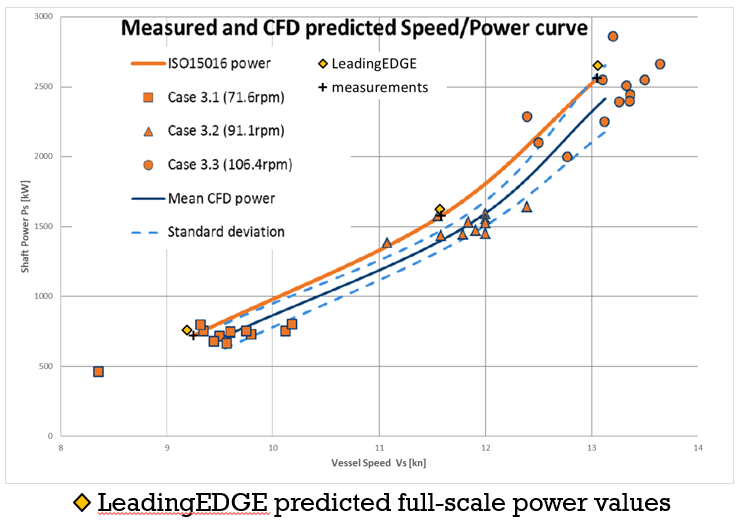At LeadingEDGE, we believe CFD heavily contributes to a necessary evolution in ship design knowledge since, when correctly applied, the numerical data produced is less affected by source of errors which can also be quantified and contained. Those errors are instead typically introduced by initial simplifications and scale effects which are at the base of traditional analytical and experimental methods still applied nowadays.
Together with the above, the use of CFD accounts for the following clear benefits:
- Ability to simulate real and ideal conditions
- Speed, thanks to the extreme computational resources scalability
- Relatively low cost
- Delivery of comprehensive information
- First time right design! Thanks to a fast iteration loop already in the early design stages

APPLICATIONS
Within our company CFD is currently used for:
- Conceptual studies of new designs
- Detailed product development
- Troubleshooting
- Research
Typical applications in the maritime field are:
- Ship resistance and powering assessment
- Appendages alignment
- Wakefiled evaluation
- Hull lines parametric optimization
- Sail plan optimization
- VPP integration
- Cavitation analysis
- Manoeuvring
- Ship motions in waves
- Wind loads
- Air pollutant tracking
- Propeller Open Water characteristics
- And much more…
In order to provide full customer flexibility and cover an even wider range of numerical simulations, we currently rely both on open source technology as well as on established commercial packages. The availability of multiple solutions at hands allows for competitive pricing, without compromising the high quality of the data delivered.
VERIFICATION & VALIDATION
Since we do not rely on lucky shots, at LeadingEDGE we effortlessly perform Verification and Validation studies against internationally known industry benchmark cases to ensure for the highest quality standards in simulation numerics and to keep on improving our internal standardized procedures.
Throughout those Verification and Validation studies we aim for consolidating the credibility of CFD simulations by defining the potential sources of error and the related uncertainty margins.
In addition to the several commercial studies performed, the following open source benchmarking material have been used:
- Ship scale CFD workshop on the General Cargo “REGAL”, Lloyd’s Register, Southampton (UK)
- Tokyo 2015 CFD workshop, National Maritime Research Institute, Tokyo (JP)
- Potsdam Propeller Test Case (PPTC), SVA institute, Potsdam, Germany (DE)
- INSEAN E1554 Propeller, CEIMM cavitation tunnel, INSEAN, Rome (ITA)
- Series 60 Hull towing tank experiment, University of Iowa (USA)
- Imoca 60 Hull towing tank experiment, Wolfson Unit Basin, University of Southampton (UK)
- Wigley Hull towing tank experiment, National Maritime Research Institute, Tokyo (JP)
- AG455ct airfoil, Low turbulence wind tunnel facility, University of Illinois (USA)
- E387 airfoil, Low Turbulence Pressure Tunnel, NASA Langley (USA)



